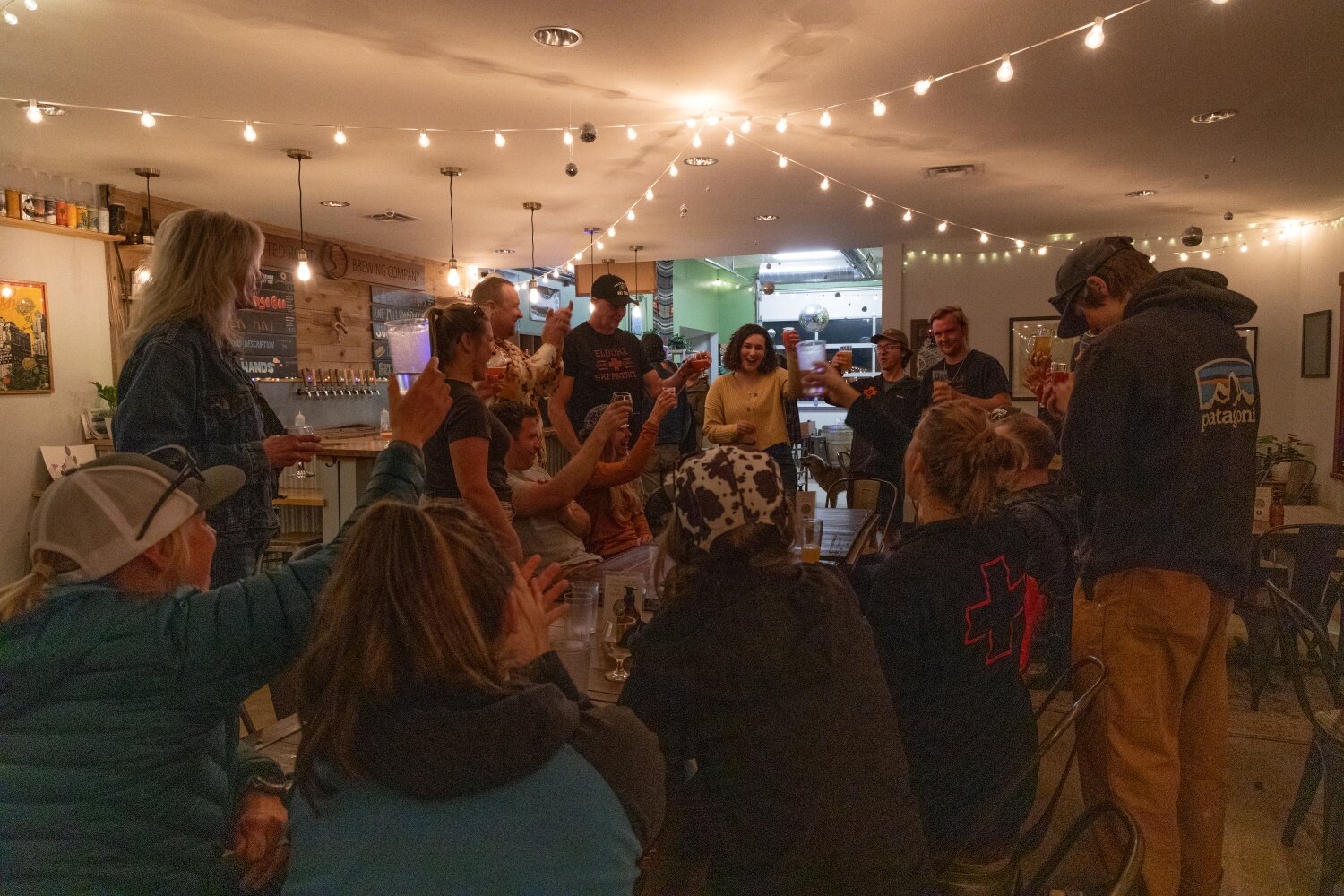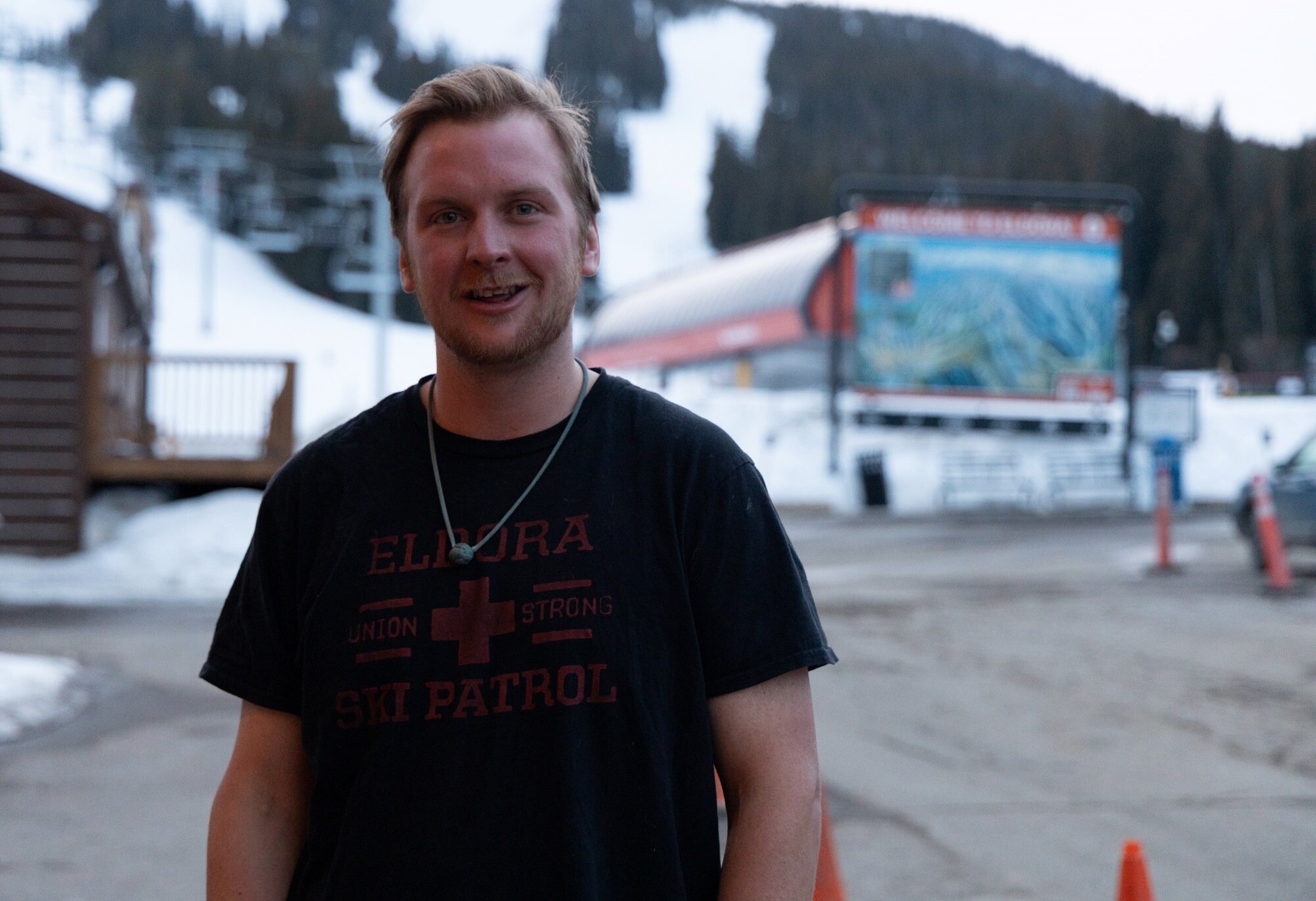Eldora ski patrollers vote to form union

June 3, 2024 update: After challenging the results of a 29-to-three-person vote to unionize Eldora Mountain Resort’s ski patrollers in April, the resort has withdrawn its objections and the union is formalized.
“Although we stand by the underlying merit, we are withdrawing the objections so that we can focus on what is important: our Patrollers,” Eldora President and General Manager Brent Tregaskis wrote in a letter to the Communications Workers of America, which houses ski patroller unions. “We are a family at Eldora that will always support one another through the good times, tough times, and despite any differences.”
Rocky Mountain PBS could not reach the Communications Workers of America or the Eldora ski patrollers before this article was published. We will the article with their statement.
You can read our original reporting on this story below.
NEDERLAND, Colo. — In a 29-to-3 vote held Saturday, ski patrollers at Eldora Mountain Ski Resort followed in the powder tracks of seven other Colorado ski areas in voting to form a union through the United Professional Ski Patrols of America.
“We have an incredibly strong team and just like when we’re dealing with medical emergencies on the mountain, we have each other’s backs and we’re ready to do what it takes to help each other out and to serve the greater good,” said Nick Lansing, a fourth-year ski patroller and member of the union organizing committee. “This is really incredible.”
Eldora — couched in the northern part of Boulder County, one of the closets resorts to the metro area — is one of Colorado’s smaller ski areas and is owned by Utah-based POWDR.
Eldora and the patrollers’ union each have a week to challenge the legitimacy of the union election. If neither party challenges, patrollers will begin a bargaining process with their bosses. Patrollers said they’re asking for the following in a contract:
- Overtime pays at 40 hours, rather than the current threshold of 56 hours.
- Health insurance for all patrollers (currently, patrollers must wait until their third year of work before getting health insurance.)
- Higher pay for more experienced patrollers
- Restroom facilities on the mountain so patrollers can use the restroom indoors while working
“We want to be a place where patrollers, regardless of any demographic, are comfortable showing up to work and feel like they’re being supported,” Lansing said. “We want to create an environment that people want to return to and feel financially enabled to do so.”
Ski patrollers and union organizers celebrate the vote Saturday, March 30, 2024.
Photo: Andrea Kramar, Rocky Mountain PBS
Lansing and others said many patrollers spend a year or two at Eldora, then move to a larger mountain. The larger resorts often offer better pay. The union hopes to close that gap and retain its experienced employees.
“My big thing has always kind of been retention and empowering people to have the tools they need to stick around and come back year after year and make the mountain and the patrol a better and more safe experience,” said Jake Miller, a ski patroller. “There are a number of individual issues but to me, it really comes down to retention.”
Patrollers start off at $18 an hour, then are bumped to $20 an hour after training. Most Eldora staff live in Nederland or Boulder, and Lansing said $20 an hour is too measly a wage for the area’s high cost of living.
Larger resorts often keep patrollers for decades, said Laura Kline, an Eldora ski patroller and member of the union organizing committee. Kline said having patrollers who know the mountain well helps serve skiers and contributes to a better experience.
“This is such a special mountain and a special place that it’s really important to me that we build a foundation for the employees that work here to be able to last a really long time and be able to build a community in Nederland and Boulder,” Kline said.
[Related: Ski patrollers unionize as housing prices soar at resorts]
Patrollers are responsible for mitigating avalanches, responding to medical emergencies on the mountain and opening and closing certain areas depending on safety and snow conditions. Several patrollers said the job is both physically and mentally taxing, and not making overtime pay until they hit a 56-hour threshold feels demoralizing.
Nick Lansing is a fourth-year ski patroller and member of the union organizing committee.
Photo: Andrea Kramar, Rocky Mountain PBS
“When people think about these jobs, their minds tend to jump to the explosives and more obvious ones, but you also have to think about the ongoing effects of what we do on our bodies, our backs, our knees,” Lansing said. “We’re on skis every day, carrying heavy things down the slopes.”
Isabel Aries, a union organizer who has helped organize ski areas across Colorado, said patrollers have seen increased duties since the pandemic, as many people picked up outdoor winter hobbies and mountains saw higher crowds. With more crowds, Aries said, came harder work.
“It’s really intense work,” Aries said. “A lot of people see them as people that get paid to ski all day or mountain cops, but they’re really just there to ensure the safety of the mountain and make sure it’s possible to operate.”
A spokeswoman from POWDR told Rocky Mountain PBS she would send a statement after patrollers voted, as the National Labor Relations Board prohibits companies from commenting on a union vote prior to an election. Rocky Mountain PBS has not yet received a statement.
Alec Berg is a reporter at Rocky Mountain PBS. Alecberg@rmpbs.org.
Andrea Kramar is the investigative multimedia journalist at Rocky Mountain PBS. Andreakramar@rmpbs.org.

